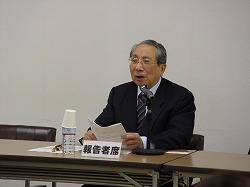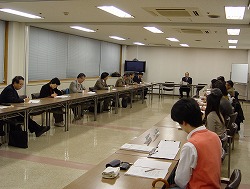8th East Asian Culture Research Meeting of 2008
Academic Frontier Sub-project 2: “Japan as Other Culture”
8th East Asian Culture Research Meeting of 2008
“Modern Japan’s invasion of Asia: re-understanding its historical background within the greater historical flow”
Speaker Nishihara, Haruo (Governor, Asian Peace Making
Center; Professor Emeritus and former
Chancellor, Waseda University)
Date Tuesday, 11 Novermber 2008, 18:30-20:30Venue Hosei University Ichigaya Campus, ’80
Building 7F, Large Conference Room 1Chair Wang, Min (Professor, Hosei University
Institute of International Japan-Studies)


The significance and background of modern Japan’s invasion of Asia was supposedly fully illuminated soonafter the end of the war. However, throughout the 60 years since, human history has put forward new viewpoints regarding its perception and evaluation. That is to say: modern Japan accepted, without question, the “dark imperialism manifesting in colonialism and shadowed by militarism” along with the parliamentary democracy upheld by the developed countries of Europe and America. This was precisely the epidemic of the 19th century. In other words, Japanese imperialism was a result of briefly catching the infection, and not the true nature of the nation of Japan; it has been cured of the epidemic during the 60 postwar years, and there is no fear of re-infection.
The epidemic of the previous century came to an end not only in Japan, but the world over. This century we have entered a new history of globalization. Due to this, 20th century-style world-scale wars among developed nations will become impossible. Instead, “people, money, goods, information, technology” will move in all directions, and as a result the world may start to function as one community.
Report by Yanaka, Shinichi (Professor, Nihon Women’s University)


